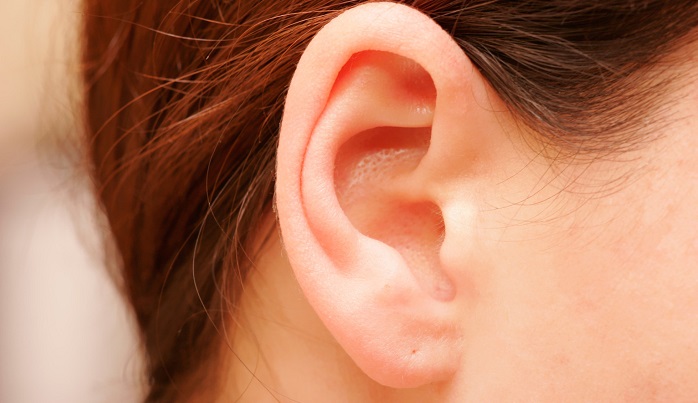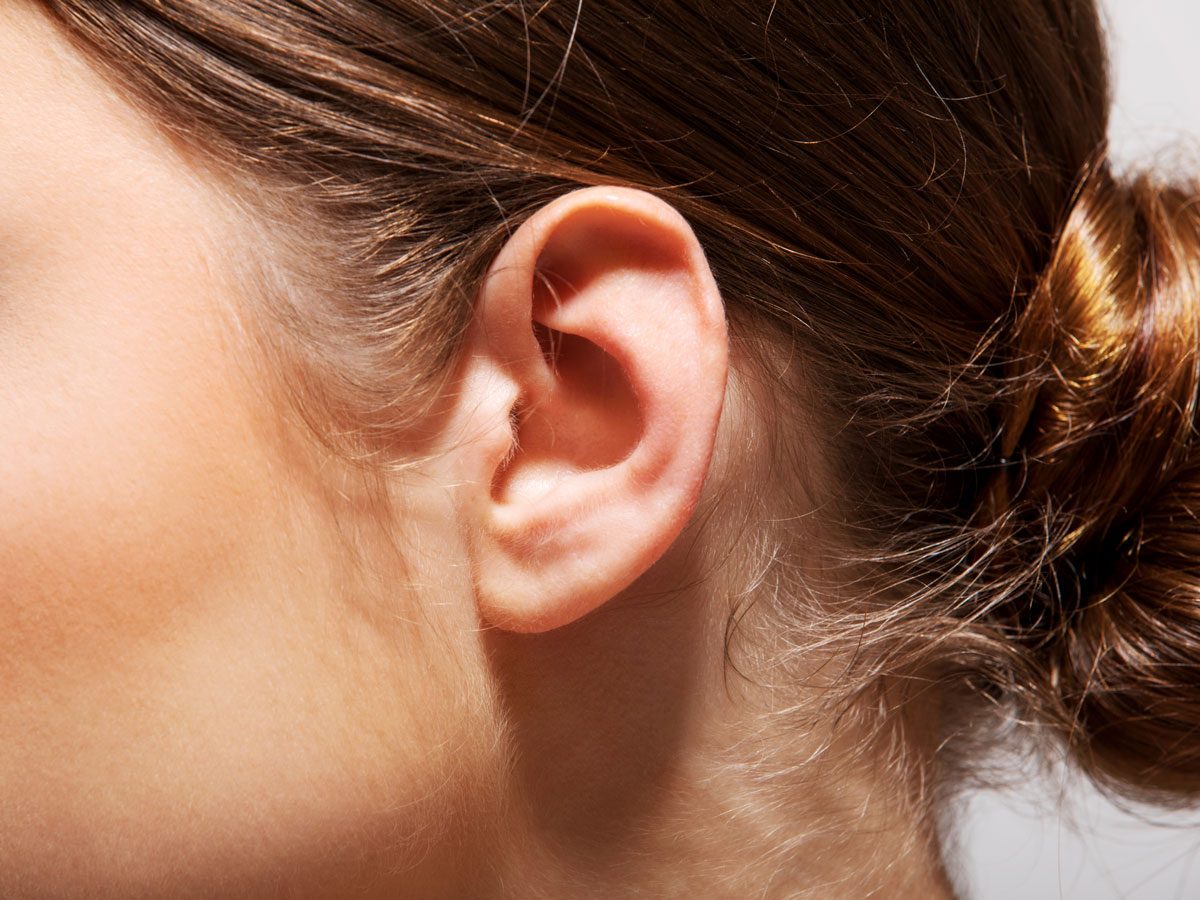Occasional Ringing In Ear
Millions of people suffer from ringing in their ears. Some hear it in one ear and other find both their ear ringing. Most people learn to live with it, but you can stop ringing in ears.
The condition is called Tinnitus, and is common. Constant tinnitus is irritating, stressful and can interfere with your concentration or sleep.With all these irritants, the good news is that Tinnitus is not life threatening condition.
Tinnitus is a medical term to explain random hearing of noises inside the ears without any external source of the noise. These noises can range from buzzing, hissing, ringing, humming, whistling or any other sound.
The ringing can be constant, intermittent or occasional. Each type of ear ringing may be caused by a variety of different reasons, but there are some common causes including, ear infection, sinus infection, wax, high blood pressure, damage to ear lining and other neural causes.
If you are suffering fromEar sounds may mimic noises, such as buzzing, ringing, clicking, hissing, clanging or wheezing. They can be present in one or both ears, constant or intermittent. Ear sounds are a common occurrence that can range in severity from being a nuisance to being a symptom of a medical emergency that should be evaluated immediately. Ringing and roaring in the ears can be a symptom of a medical condition, such as abnormal fluid pressure in the inner ear (Meniere’s disease), a non-cancerous tumour (acoustic neuroma), hypertension, diabetes, or even allergies.
constant ringing in one ear only for days, followed by dizziness or no dizziness, you can learn to deal with it to minimize its impact. In some cases you can completely stop the ringing.Causes of Ringing in One Ear
Though it is not very clear what causes ringing in one ear, occasionally High blood pressure, allergy or anemia can also cause sudden ringing in one ear or both. Other substances that may induce tinnitus are alcohol, caffeine, aspiring, antibiotics and some other drugs.
If you have suddenly realized the ringing during the past few days or weeks, then it may be most likely due to stuffy ear. It can either be wax or some sort of infection, but the long term ringing in one ear can be attributed to some sort of ear membrane damage or metabolic imbalances, nervous system issues, or circulatory problems. None of these things should be particularly be of real cause of concern.

However, one ear ringing can be serious in one case, particularly when the discomfort increase over a period of time and other symptoms emerge. In those cases, it may be worthwhile to exclude any tumor. This is rare but once you are clear that there is no tumor, it becomes easy to deal with the ringing.
How to Stop the Ringing?
You can deal with tinnitus with home remedies but perhaps you can't get rid of it for ever in most cases. Some lifestyle changes, giving up a few favorites such as coffee and Alcohol etc. and certain medication can help in reducing the impact of ringing in the ear.
Not a comprehensive list, but covering most of the items that can help you to reduce ringing are given below:
1. Mask the Noise:
It is more about diverting attention. trying to listen to the noises you like, so that the focus from the annoying ringing moves away. Masking the noise of ear ringing by other soothing sound like light music, is one of the best ways to stop ringing in one ear.
In fact, if you are driving or traveling, then listen to educational audio of your liking and choice. This will not only divert your attention ringing in ears, but also help you in learning new things.
2. Avoid Calm Places:
If ringing in your ears is already loud and constant then the calm and tranquil surroundings will make it worse. During the day time you can avoid such places, but the night time itself is calm. Sleeping can be disturbed. During the night when ringing in ear becomes more prominent due to quiet surrounding, a constant humming of humidifier or air conditioner can be very helpful in stopping the ringing sound in ear.
Even a constant running fan can mask the ringing. The regular patterns of noise created by any external source can easily distract you from the ear ringing so that you can sleep.
3. Take Rest
Stress can cause high blood pressure which can lead to ear ringing. Taking rest can calm you down and your blood pressure becomes normal. Yoga and meditation can help you to calm down. make it a regular practice. Get more rest.
Most of the methods discussed so far are basically using external sources to stop ringing in one ear or both, but there are some internal changes that can also help you to give a permanent long term solution of ringing ears.
4. Avoid Addictions
Addictions to caffeine, alcohol or nicotine can significantly increase ringing in ear. In fact they may be the real cause in some cases.
- Completely give up all caffeine containing food items, starting with giving up drinking coffee completely.
- No alcohol. Stop the alcohol consumption completely.
- Quit smoking. Nicotine actually retards blood circulation giving rise to the ringing in ear.

if your tinnitus was due to these addiction, then you will notice that your ringing in the ear has disappeared a few months after your giving up on these addictions. In fact it may happen in weeks.
If your ears have to work hard to hear, then the tinnitus can become worst. Therefore it is important to cure the hearing loss condition first. Since the part of the brain that functions to aid hearing will notice ringing as it works hard.
Even a mild hearing loss can exaggerate ringing in the ear. Correct it. All hearing losses cannot be cured completely but with hearing aids you can correct the defect.
If ear ringing has started after a head injury then you must call on your doctor because it may not be tinnitus. You should also consult your doctor if sudden ringing in one ear is followed by dizziness.
What Causes Ringing In The Ears
Otherwise Just learn to live with ringing in ear.
5. Correct Hearing Loss if Any
Many people ask whether tinnitus in one ear is possible, or whether it has to be in both ears. In fact, the sounds that tinnitus sufferers hear may seem to come from one ear, or both – and at times, the sound may even sound as if it’s coming from your head.
Is it possible however, that some may only experience tinnitus in one ear. It can initially develop in one ear and later progress to the other. The salient point is, that in whichever ear the tinnitus presents itself, there will be a persistent sound that won’t go away. The sound may be steady, or pulsating (i.e. in sync with your pulse or heartbeat).
Possible Causes of Tinnitus in One Ear
Occasional Ringing In Ear Nose
We have all probably experienced what tinnitus is like at some stage in our lives. If one of our ears was close to a loud noise, like a gunshot or smack in the ear, you may remember hearing a ringing sound for a short time in that ear. This comes from your inner ear nerve fibres having been impacted by the damage.
Single ear tinnitus is often associated with hearing loss. If a hearing test shows a one sided hearing loss, or an asymmetric hearing loss (worse in one ear than the other), then the index of suspicion for an acoustic neuroma is high. An acoustic neuroma (sometimes termed neurinoma or schwannoma) is a benign (non-cancerous) tumor that arises on the nerve of hearing and balance (8th Cranial Nerve) within the inner ear.
If there is tinnitus in one ear, even if the hearing test is normal, there is a high index of suspicion for an acoustic neuroma. The definitive diagnostic test for an acoustic neuroma is Magnetic Resonance Imaging (MRI) of the nerve of hearing and balance. This test is usually performed with injection of a contrast material, called gadolinium. With contrast the MRI is 100% effective in diagnosing even the smallest acoustic tumor. Without contrast, small tumors, limited to the inner ear, may be missed. Some people can not have an MRI scan, for various reasons. In that instance a CT scan can be performed. Although not as accurate as an MRI, it will diagnose most acoustic tumors.
Tinnitus is most noticeable when your environment is most quiet. For this reason, it has sometimes been called “the sound of silence”. If everyone was placed in a quiet, soundproof room, we would all hear at least a a type of rushing or hissing sound. Usually this noise is masked by environmental sounds. It is when this type of noise becomes intrusive into everyday life that it can become immensely irritating and becomes known as ‘tinnitus’.
The following medical conditions are some of the possible causes of Tinnitus in one ear. There are likely to be other possible causes, so ask your doctor about your symptoms.


Aspirin overdose
Quinine overdose
Ear wax
Impacted cerumen
Eustachian tube dysfunction
Acute ear infection
Chronic ear infection
Noise-induced hearing loss
Trauma (e.g. whiplash, airbag)
Barotraumas
Temporal mandibular joint disorder
Migraine
Ototoxicity
Otosclerosis
Pseudotumor cerebri
Glomus tympanicum
Glomus jugulare
Acoustic neuroma
Thyroid disease
Autoimmune inner ear disease
Idiopathic
Sickle cell disease
Anemia
Osteogenesis imperfecta
Symptomatic Chiari malformation
Late-onset congenital hearing loss
Hypertension
Infections:
Meningitis
Lyme disease

Sound Therapies for Tinnitus in One Ear
Certainly, if you have hearing loss in only one ear, then you only need one hearing aid. Even with maskers, masking just the affected ear might be effective. Yet, when the patient successfully masks the tinnitus in one ear, tinnitus often shows up in the other ear. What’s happening is that the tinnitus has probably been present in both ears all along, but it was only heard on the louder side. When the dominant side was masked, the quieter tinnitus on the other side became audible. Patients frequently do better with maskers in both ears.
The protocol of tinnitus retraining therapy is to stimulate both ears, because the entire auditory system needs to be stimulated. Remember, once we get beyond the inner ear, the ears are connected to each other within the brainstem.
If I have tinnitus in one ear, will it start in the other ear as well?
If you have tinnitus in only one ear this will need to be investigated by an Ear, Nose and Throat doctor to determine what might be causing the tinnitus. In most cases just because you have tinnitus in one ear does not mean you will also eventually get it in the other ear.
Intermittent Tinnitus in One Ear
What Causes Intermittent Tinnitus In One Ear? If the tinnitus is in only one ear it is because only this ear has received some sort of damage to the inner ear (usually to the cochlea). This damage can be due to a number of factors such as: single exposure to sudden very loud noise; prolonged exposure to loud sounds; various infections; neck or head injury; reaction to various drugs.
There are two reasons why the tinnitus is intermittent. i.e. that you experience periods of silence in between the bouts of tinnitus. The first reason is that the other sounds around you are drowning out the noise of the tinnitus. The second reason is that the brain is somehow managing to ignore the tinnitus, but then it ceases to do so.
Occasional Ringing In Ears And Dizziness
Suggested Self Help Ideas
Ringing In Ear Treatment
Just try to find ways to ease up the ringing noise, lower your sodium/caffeine intake, no alcohol, no high pitched music, don’t use headphone/earphone, and get enough sleeps. If you can’t sleep at night, download soft music (preferred jazz, white noise, saxophone music) so you can listen to it during sleeps, it helps block your ringing sounds, try songs that are specifically for babies, songs that make u go sleep fast.